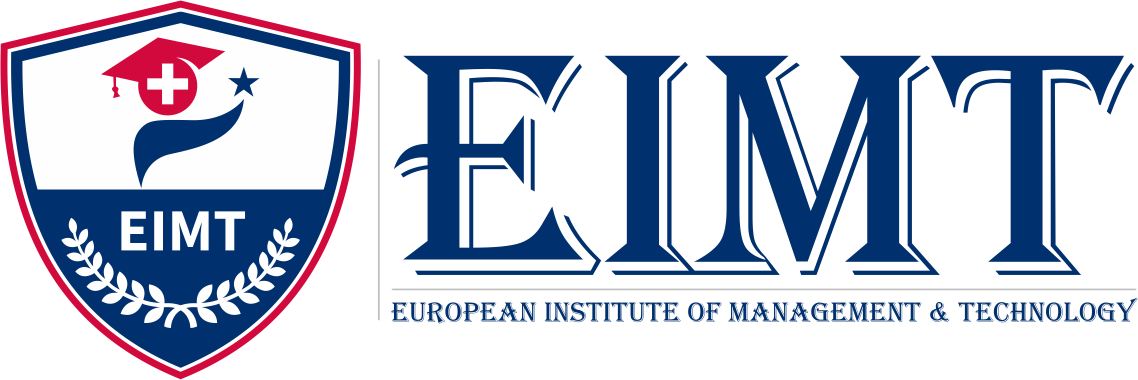
Bachelor of Arts in Economics
- Home
- Bachelor of Arts in Economics
Program Overview
-
36 Months online Program.
-
Specially Designed for Working Professionals.
-
International Networking Opportunities.
-
Highly Qualified Industry Experienced Faculties.
-
Strengthen your commercial and financial skills.
-
Get strong knowledge of economic indicators like GDP, exchange rate, unemployment rate, inflation rate, interest rate, CPI, Money Supply, MPR, CRR, Repos, and NCO, etc.
Achieve Your Dream
Bachelor of Arts in Economics (BAE)
The Bachelor of Economics program focuses on economic research and analysis, policy formulation, and implementation faced by economies across the globe. It recognizes the growing demand for a skilled workforce in the industry across diverse sectors and encourages future researchers and professionals in economics. The curriculum is designed to inspire young minds with innovative ideas and concepts. It focuses on global issues related to the economy and business. The curriculum covers a variety of topics, from market expansion to the impact of the global financial crisis. This program develops students' analytical and problem-solving, writing, reading, speaking, and presentation skills.
BAE Key Learning Objectives
- Understand the techniques for managing macroeconomic risks imposed by changing exchange rates, money supply, inflation, interest rate, fiscal policies, and international ratings and understand fundamental macroeconomic relationships such as inflation, interest rate, and exchange rate.
- Application of the analysis of demand and supply for interpreting determinants of prices and output in different markets.
- Carry out quantitative data analysis by leveraging the latest software and technology.
- Understand the fiscal policy mechanism; how to carry out budgetary analysis, the meaning of the budget cycle, budget deficit, budget surplus, and the government’s tax and revenue behavior. Statistics is a core element of the program as economics involves dealing with massive amounts of data and numbers.
- In-depth comprehension and Knowledge acquisition of core economical and financial concepts and theories
- Understand the monetary system, the role of the Central Bank in monetary policy formulation, and the key instruments of macroeconomic policy and describe their role in the economy.
-
Bachelor of Arts in Economics
Bachelor of Arts in Economics
- Eligibility: Senior Secondary Schooling
- Duration: 36 Months
- Enrollment: Being online - Throughout the Year
Important Information Regarding BAE Program
Program Delivery


Professional Professors
General Admission Requirements:
Candidates are eligible for admission by satisfying the following admissions criteria:-
Applicants for the BAE program are exempted from an English exam provided they completed their last schooling years at a recognized school where the medium of teaching is English.
-
A senior Cambridge certificate or a certificate equivalent to senior secondary education.
-
Submission and evaluation of graduate school applications including; undergraduate academic transcripts, ID or passport copy, and resume.
Application Go Through:
Applications are only accepted online. Once the application form is received, our team looks after the past performance and future potential and will contact you accordingly.
What is Next?:
Once the Admission Committee reviews your application with +ve response, you will receive a letter of admission. Having processed the payment, you will receive an email with your login credentials and will be granted access to our Learn Management System.
The Curriculum
Modules during your First Year
-
Introductory Microeconomics
This course is designed to expose the students to the basic principles of economics.
-
Mathematical Methods For Economics I
The objective of this sequence is to transmit the body of basic mathematics that enables the study of economic theory at the undergraduate level, specifically the courses on microeconomic theory, macroeconomic theory, statistics and econometrics set out in this syllabus. In this course, particular economic models are not the ends, but the means for illustrating the method of applying mathematical techniques to economic theory in general.
-
Introductory Macroeconomics
This course aims to introduce the students to the basic concepts of Macroeconomics. Macroeconomics deals with the aggregate economy. This course discusses the preliminary concepts associated with the determination and measurement of aggregate macroeconomic variable like savings, investment, GDP, money, inflation, and the balance of payments. -
Methods of Economic Analysis
Explore More !!
-
Communication Skills
This course is focused on developing communicative competence in English with knowledge of the building blocks of grammar, usage and vocabulary. Core competencies in reading and thinking are sought be encouraged through suitable reading content in prose form. Similarly writing activities and language exercises are provided to facilitate absorption of the rules of syntax and etiquettes of style
-
Microeconomics I
This course is designed to provide training in microeconomics to formally analyse the behaviour of individual agents.
-
Mathematical Methods For Economics II
This course is the second part of a compulsory two-course sequence. This part is to be taught in Semester II following the first part in Semester I. The objective of this sequence is to transmit the body of basic mathematics that enables the study of economic theory at the undergraduate level, specifically the courses on microeconomic theory, macroeconomic theory, statistics and econometrics set out in this Syllabus. In this course, particular economic models are not the ends, but the means for illustrating the method of applying mathematical techniques to economic theory in general. -
Macroeconomics I
This course introduces the students to formal modelling of a macro-economy in terms of analytical tools. It discusses various alternative theories of output and employment determination in a closed economy in the short run as well as medium run, and the role of policy in this context. It also introduces the students to various theoretical issues related to an open economy.
-
Statistical Methods For Economics
This is a course on statistical methods for economics. It begins with some basic concepts and terminology that are fundamental to statistical analysis and inference. It is followed by a study and measure of relationship between variables, which are the core of economic analysis. This is followed by a basic discussion on index numbers and time series. The paper finally develops the notion of probability, followed by probability distributions of discrete and continuous random variables and introduces the most frequently used theoretical distribution, the Normal distribution.
-
Economics of Banking & Money
Explore More !!
Modules during your Second year
-
Microeconomics II
This course is a sequel to Microeconomics I. The emphasis will be on giving conceptual clarity to the student coupled with the use of mathematical tools and reasoning. It covers Market, general equilibrium and welfare, imperfect markets and topics under information economics.
-
Macroeconomics II
This course is a sequel to Macroeconomics I.
-
Public Economics
Public economics is the study of government policy from the points of view of economic efficiency and equity. The paper deals with the nature of government intervention and its implications for allocation, distribution and stabilization. Inherently, this study involves a formal analysis of government taxation and expenditures. The subject encompasses a host of topics including public goods, market failures and externalities. -
Development Economics I
This is the first part of a two-part course on economic development. The course begins with a discussion of alternative conceptions of development and their justification. It then proceeds to aggregate models of growth and cross-national comparisons of the growth experience that can help evaluate these models. The axiomatic basis for inequality measurement is used to develop measures of inequality and connections between growth and inequality are explored. The course ends by linking political institutions to growth and inequality by discussing the role of the state in economic development and the informational and incentive problems that affect state governance.
-
Production, Costs, and Perfect Competition
Explore More!!
-
Development Economics II
This is the second module of the economic development sequence. It begins with basic demographic concepts and their evolution during the process of development. The structure of markets and contracts is linked to the particular problems of enforcement experienced in poor countries.
-
Money And Banking
This paper intends to explain the ideas and institutions concerning money and banking. It will help the students to understand the meaning, functions and theories of money the working of different types of banks in an economy. -
Market Failure
Explore More !!
-
Monetary & Fiscal Policy
Explore More !!
-
Growth & Distribution
Explore More !!
Modules during your Third year
-
Principles of Public Debt
This module represents an attempt to apply the theory of public debt contained in the earlier chapters to the general problem of measuring the magnitude or size of the national debt. It is an exploratory effort designed to raise and to isolate the relevant issues rather than to resolve all of the complexities which may appear.
-
Macro-Variables – Flow & Stock
Explore More !!
-
Circular Flow of Income
Explore More !! -
Economics of the Society
Explore More !!
-
Open-Economy Models
Explore More!!
-
Project/Thesis
Student need to submit one major project based on the internship and course work.
Frequently Asked Questions
-
Is there any cap on the maximum numbers of students in class?
There is no cap as the course in very flexible.
-
Is math important for this course?
Yes, math in 11th and 12th is required for any program in Economics.
-
Are faculties same in BA Economics and MA Economics.
Yes, barring one or two, all the faculties are the same. Our team of faculties is selected from across the globe given their level of expertise in the industry as well as in teaching.
-
Can I go into Law with a BA Economics degree?
Absolutely! The combination of knowledge in Law and Economics can give you career opportunities in public policy, market research, and corporate law.
-
What are the different interdisciplinary fields within Economics?
Some of the most popular interdisciplinary fields within Economics include Econometrics, Developmental Economics, Banking Economics, International Economics, and Financial Economics
-
Can I work in a consultancy firm with a BA Economics degree?
Yes, several consultancy firms across the world hire Economics graduates to act as advisors for the firm.
